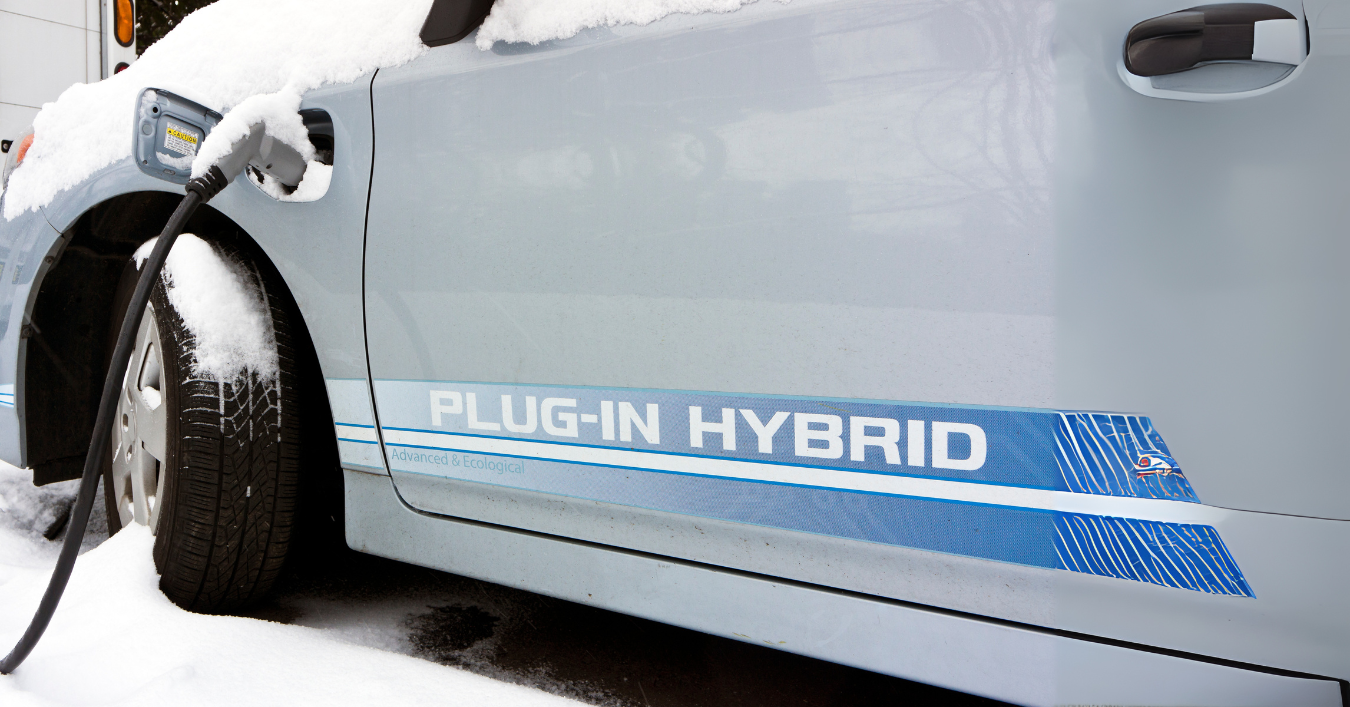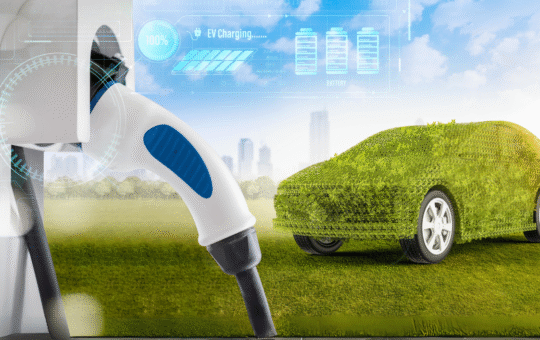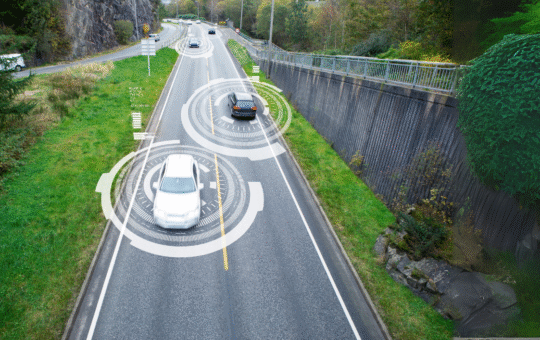
Level 6 Diploma in Advanced Hybrid and Electric Vehicle Technologies
- Gain an in-depth understanding of hybrid and electric vehicle technologies, from powertrain design to energy management.
- Learn about the integration of electric propulsion systems, advanced battery technologies, and energy efficiency strategies.
- Develop expertise in the maintenance, repair, and optimization of HEV and EV components.
- Improve your career prospects with a qualification in one of the fastest-growing sectors of the automotive industry.
- Understand the key components of hybrid and electric vehicles, including electric motors, battery packs, and power electronics.
- Gain proficiency in designing and optimizing electric powertrains for vehicles, balancing performance and energy efficiency.
- Learn about energy management systems, regenerative braking, and charging infrastructure for HEVs and EVs.
- Explore the regulatory, safety, and environmental standards associated with hybrid and electric vehicles.
- Introduction to Hybrid and Electric Vehicles
- Overview of the evolution of hybrid and electric vehicles.
- Key components of HEVs and EVs: electric motors, battery packs, powertrains, and charging systems.
- Electric Propulsion Systems
- Design and operation of electric motors used in EVs and HEVs.
- Power generation, transmission, and energy storage techniques used in electric propulsion systems.
- Battery Technologies and Management Systems
- In-depth study of different battery types (lithium-ion, solid-state, etc.) used in hybrid and electric vehicles.
- Battery management systems (BMS) for ensuring optimal performance, life span, and safety.
- Energy Efficiency and Regenerative Braking
- Techniques for maximizing energy efficiency in hybrid and electric vehicles.
- The role of regenerative braking systems in energy recovery and optimizing vehicle range.
- Charging Infrastructure and Network
- Understanding the various EV charging standards (Level 1, Level 2, and DC fast charging).
- Designing and implementing EV charging infrastructure, including smart charging networks.
- Vehicle Safety and Regulatory Standards
- Safety considerations in hybrid and electric vehicle design, including battery safety and crashworthiness.
- Overview of global standards and regulations governing HEVs and EVs, such as ISO and UN regulations.
- Sustainability and Environmental Impact
- Analyzing the environmental impact of hybrid and electric vehicles, including lifecycle analysis and carbon footprint reduction.
- How HEVs and EVs contribute to reducing pollution and greenhouse gas emissions.
- Pursue advanced qualifications in sustainable automotive engineering, electric vehicle systems, or renewable energy applications (e.g., Master's in sustainable transport or electric vehicle engineering).
- Work as an EV/HEV systems engineer, battery design engineer, or charging infrastructure specialist in the automotive industry.
- Specialize in the development and optimization of electric powertrains, energy management, or vehicle electrification in automotive R&D or manufacturing firms.
- Cutting-Edge Knowledge: Gain expertise in the most advanced technologies shaping the future of the automotive industry.
- Hands-On Experience: Learn through real-world applications, simulations, and projects focused on hybrid and electric vehicle technologies.
- Expert Guidance: Learn from instructors with deep knowledge in electric vehicle systems, sustainable transportation, and automotive R&D.
- Globally Recognized Qualification: Enhance your career prospects with a diploma recognized by leading automotive manufacturers, tech companies, and energy providers.
Study Units
- Introduction to Hybrid and Electric Vehicles
- Overview of the evolution of hybrid and electric vehicles.
- Key components of HEVs and EVs: electric motors, battery packs, powertrains, and charging systems.
- Electric Propulsion Systems
- Design and operation of electric motors used in EVs and HEVs.
- Power generation, transmission, and energy storage techniques used in electric propulsion systems.
- Battery Technologies and Management Systems
- In-depth study of different battery types (lithium-ion, solid-state, etc.) used in hybrid and electric vehicles.
- Battery management systems (BMS) for ensuring optimal performance, life span, and safety.
- Energy Efficiency and Regenerative Braking
- Techniques for maximizing energy efficiency in hybrid and electric vehicles.
- The role of regenerative braking systems in energy recovery and optimizing vehicle range.
- Charging Infrastructure and Network
- Understanding the various EV charging standards (Level 1, Level 2, and DC fast charging).
- Designing and implementing EV charging infrastructure, including smart charging networks.
- Vehicle Safety and Regulatory Standards
- Safety considerations in hybrid and electric vehicle design, including battery safety and crashworthiness.
- Overview of global standards and regulations governing HEVs and EVs, such as ISO and UN regulations.
- Sustainability and Environmental Impact
- Analyzing the environmental impact of hybrid and electric vehicles, including lifecycle analysis and carbon footprint reduction.
- How HEVs and EVs contribute to reducing pollution and greenhouse gas emissions.
Upon completing this diploma, learners will:
- Understand the key components of hybrid and electric vehicles, including electric motors, battery packs, and power electronics.
- Gain proficiency in designing and optimizing electric powertrains for vehicles, balancing performance and energy efficiency.
- Learn about energy management systems, regenerative braking, and charging infrastructure for HEVs and EVs.
- Explore the regulatory, safety, and environmental standards associated with hybrid and electric vehicles.
This diploma is ideal for individuals aiming to become leaders in the transition to cleaner, more sustainable transportation. It is specifically designed for:
Electric and Hybrid Vehicle Engineers
Professionals involved in the design, integration, or optimization of electric and hybrid powertrains, battery systems, and energy management solutions.
Automotive Technicians and Maintenance Specialists
Technicians looking to upskill in diagnosing, repairing, and maintaining EV/HEV systems, including battery management systems and charging infrastructure.
Battery Technology and Energy Storage Experts
Engineers and researchers specializing in battery development, safety, and performance optimization for electric mobility applications.
Charging Infrastructure and Smart Grid Developers
Individuals involved in the planning, design, and implementation of EV charging stations, networks, and smart energy solutions.
R&D Professionals in Sustainable Transportation
Engineers working in automotive innovation and sustainability, focusing on improving energy efficiency, emissions reduction, and environmental impact.
Automotive Engineering Graduates and Technologists
Recent graduates looking to specialize in electric and hybrid vehicle systems at an advanced technical level and gain a competitive edge in the job market.
Environmental Engineers and Policymakers
Professionals engaged in promoting green transport policies, emission reduction strategies, and lifecycle analysis of sustainable mobility solutions.
Our assessment process is designed to ensure every learner achieves the required level of knowledge, skills, and understanding outlined in each course unit.
Purpose of Assessment
Assessment helps measure how well a learner has met the learning outcomes. It ensures consistency, quality, and fairness across all learners.
What Learners Need to Do
Learners must provide clear evidence that shows they have met all the learning outcomes and assessment criteria for each unit. This evidence can take different forms depending on the course and type of learning.
Types of Acceptable Evidence
Assignments, reports, or projects
Worksheets or written tasks
Portfolios of practical work
Answers to oral or written questions
Test or exam papers
Understanding the Structure
Learning outcomes explain what learners should know, understand, or be able to do.
Assessment criteria set the standard learners must meet to achieve each learning outcome.
Assessment Guidelines
All assessment must be authentic, current, and relevant to the unit.
Evidence must match each assessment criterion clearly.
Plagiarism or copied work is not accepted.
All learners must complete assessments within the given timelines.
Where applicable, assessments may be reviewed or verified by internal or external quality assurers.
Full learning outcomes and assessment criteria for each qualification are available from page 8 of the course handbook.
Top Courses
No results found.
Related Courses
Let's Get in touch
Deleting Course Review
Course Access
This course is password protected. To access it please enter your password below:



